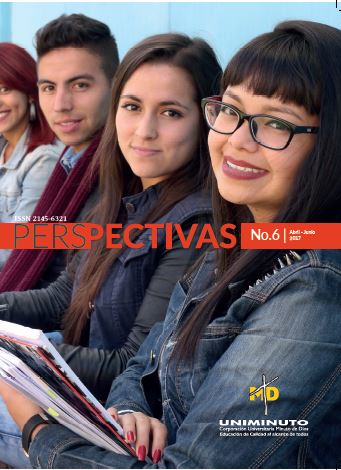Pedagogía en contexto: aula móvil
Barra lateral del artículo
Cómo citar
Detalles del artículo
Contenido principal del artículo
Resumen
Aula Móvil se configura como un escenario de aprendizaje itinerante que recorre seis comunas y dos corregimientos del municipio de Soacha, donde se fusionan la fundamentación teórica, las prácticas pedagógicas y la investigación. En este mismo sentido, el proyecto entrega pistas a considerar en la organización de las prácticas, a fin de estimular el desarrollo profesional del futuro docente, fomentar espacios de proyección social y establecer escenarios de investigación pedagógica. Aula Móvil se asume como un espacio que brinda a las niñas y los niños del municipio educación complementaria al sistema escolar, con actividades lúdico-pedagógicas encaminadas a potenciar el desarrollo de las dimensiones del ser humano –ética, corporal, comunicativa, estética, espiritual, socio-afectiva y cognitiva– que permita el desarrollo del pensamiento críticocreativo con recursos y didácticas propios de la pedagogía infantil.
En esta primera etapa de Aula Móvil se ha hecho un ejercicio de reconocimiento de las problemáticas de las diferentes comunas, que sirve de base para el diseño y construcción de proyectos pedagógicos y plantear ideas de investigación que se materializaran en proyectos de investigación en la opción de grado. Este diagnóstico evidencia que en el municipio de Soacha hay falta de atención a la primera infancia debido a afectaciones políticas, económicas, sociales y culturales. Se plantea que este fenómeno debe ser examinado desde una reconstrucción de memoria histórica con el ánimo de evidenciar las acciones que se han venido desarrollando desde la academia para el mejoramiento social y la construcción de paz. Por esto, se plantea para la segunda etapa del proyecto el siguiente cuestionamiento: ¿Cuál es el impacto de las prácticas pedagógicas desarrolladas por los estudiantes de la Licenciatura en Educación Infantil de UNIMINUTO en la población de niños en edades de 0 a 7 años pertenecientes al municipio de Soacha y vinculados a la estrategia “Aula Móvil”?
Referencias
Corporación Universitaria Minuto de Dios. (2015). Organización de las prácticas pedagógicas. Proyecto Curricular de Programa. Bogotá-Colombia.
El Universal, (2014). Autobús itinerante invita a los niños a jugar con Tamayo. Recuperado de http:// archivo.eluniversal.com.mx/cultura/2014/ jugando-con-tamayo-autobus-itinerante-1028161.html
Hernández Sampieri, R., et al. (2003). Metodología de la Investigación. México: Editorial Mc Graw Hill Interamericana.
López, E., & Weiss, E. (2007). Una mirada diferente a las prácticas: Un taller de electrónica en el conalep. revista Mexicana de Investigación Educativa, 12(35), 1329-1356.
Ministerio de Educación Nacional. (1994). Ley General de Educación 115 de 1994: por la cual se expide la ley general de educación.
Ministerio de Educación Nacional. (2014). Sentido de la Educación Inicial. Serie de orientaciones pedagógicas para la educación en el marco de la atención integral. Bogotá-Colombia.
Molins, M. P., et al. (2011). María Montessori: el Método de la Pedagogía Científica. El legado pedagógico del siglo xx para la escuela del siglo xxi. Barcelona: Editorial Grao.
Moreira, M. A. (1995). Teorías cognitivas antiguas. Serie Enfoques teóricos, (2). Brasil, Porto Alegre: Instituto de Física.
Nuestro Proyecto Social. (2013). El Biblioburro. Magdalena-Colombia. Recuperado de http://biblioburrosinfronteras.blogspot.com.co/
Torres, A. (2010). Educación popular y producción de conocimiento. La Piragua, Revista Latinoamericana de Educación y Política.

